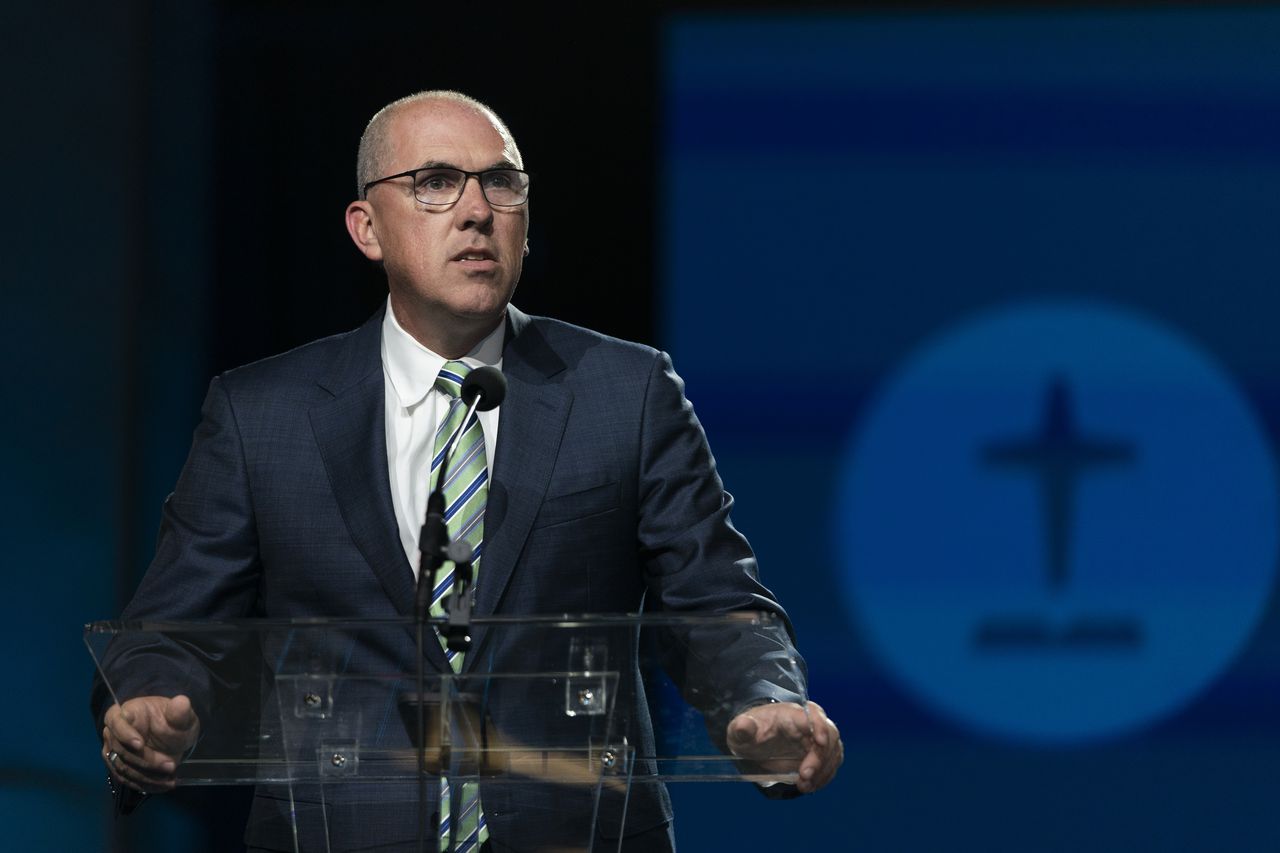Southern Baptist president Bart Barber asks for forgiveness for Kentucky sex abuse amicus brief
Southern Baptist Convention president Bart Barber, in a statement released early Monday morning, asked for forgiveness from those those angry with him for signing off on a controversial Kentucky friend-of-the-court brief in August 2022.
Barber, however, said the decision to file it was made by Willie McLaurin, then the Interim CEO of the SBC Executive Committee.
“The consent that I gave … was consent that I gave in coordination with the decision made by the Interim CEO of the SBC Executive Committee,” Barber wrote.
Though the statement does not mention McLaurin’s name, the Tennessee pastor assumed that role in February 2022 and resigned August 2023 after it came to light that he presented false information about his educational qualifications on his resume.
“The messengers have not voted on any of this. Does it even lie within the power of the SBC President to make decisions about amici curiae unilaterally on behalf of the Convention? I think probably not,” Barber wrote.
“When the SBC Executive Committee exercises its ad interim authority on matter like this, I think that the President of the SBC is as obligated to execute those decisions as he is if the messengers had voted on the matter themselves.”
Efforts by AL.com to reach McLaurin were not immediately successful Monday morning.
The filing comes in the case of a woman adopted at age 2 by a Louisville police officer — now serving a 15-year prison sentence for sexually abusing her throughout her childhood, the Louisville Courier-Journal reported last week.
The case was dismissed and reinstated as the state’s law was expanded to lengthen the statute of limitations and allow claims to be brought against “non-perpetrators” such as religious organizations.
“The Southern Baptist Convention and the Southern Baptist Theological Seminary … in their brief they say they ‘of course do not dispute the laudable policy reasons for providing relief for victims of childhood sexual abuse,’” the Courier-Journal reported. “But ‘not even the most sacrosanct policy can trump the due process concerns presented in this and similar cases involving the attempted retroactive application of expired claims,’ they say.”
Barber wrote that he “found the email where I approved the SBC’s participation in this brief ….This is my doing. I approved it.”
Because of the filing, he added, “a lot of people are disappointed with me and angry. I’m talking about friends I’ve had for two decades. I’m talking about survivors of sexual abuse for whom I have wanted to be an advocate. I’m talking about people I myself appointed to carry forward the SBC’s response to the Guidepost Investigation. A lot of people—a lot of friends and allies—are really disappointed with me today. I don’t have words to express how I feel about that.”
Barber wrote that his decision to sign off on it came the day after he announced the appointment of the Abuse Reform Implementation Task Force.
“The whole thing was an email conversation, and a brief one at that. I became aware that the SBC Executive Committee was joining the brief. I approved our joining the brief. I hadn’t heard anything about it or thought anything about it since then until last Wednesday.
Barber added that he “did not know the circumstances of the underlying legal case” or the abuse endured by Samantha Killary, whose sexual abuse at the hands of her adopted father, a former police officer, is at the center of the Kentucky case.
“Knowing what I know now about what she has endured, I can’t stop thinking about her. What have I communicated to her and to other survivors by taking this action? Those questions can give clarity when legal questions are difficult to sort out. And some of the legal questions in play certainly are difficult to sort out,” Barber wrote.
Barber added that he thought statutes of limitation, the focus of the SBC’s filing, “are a mixed bag … I am uncomfortable with the harm statutes of limitations can do, but I also think that they play a valid role in the law sometimes.”
Regardless, Barber wrote that he “did not give this decision to file this brief the level of consideration that it deserved….”
“I did, in fact, wind up hurting survivors by what I did. My determination for us to advance abuse reform in the SBC is no less than it was when I began, but I know that my credibility with you is harmed by this, perhaps irreparably … I hope that I learn a little with every mistake that I make, and I hope that those of you who are angry with me today can find it in your hearts to forgive me.”
